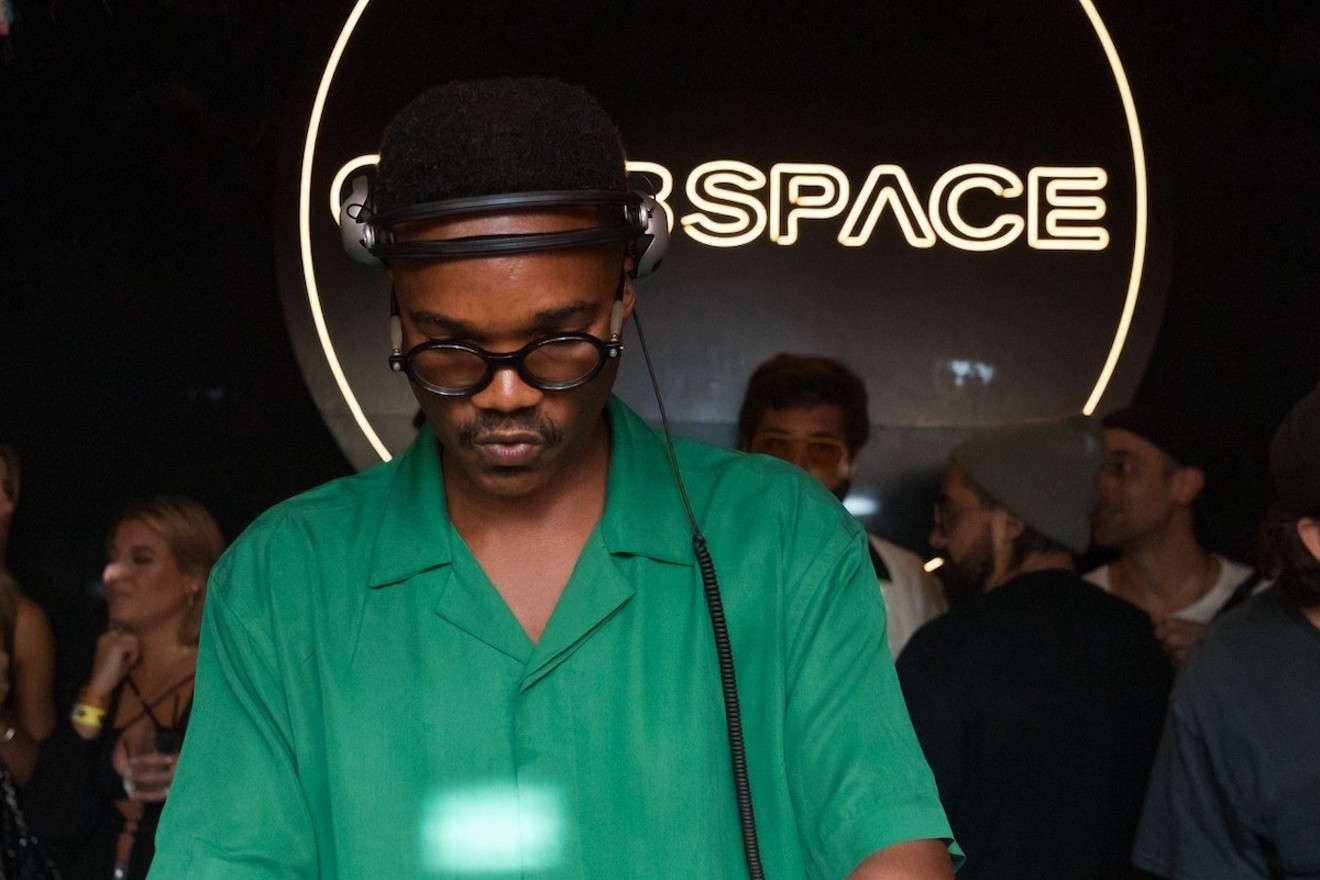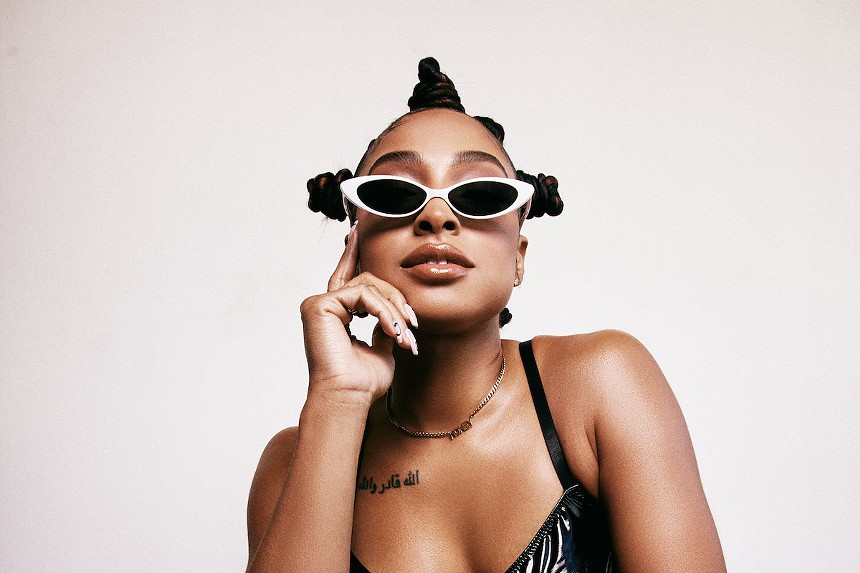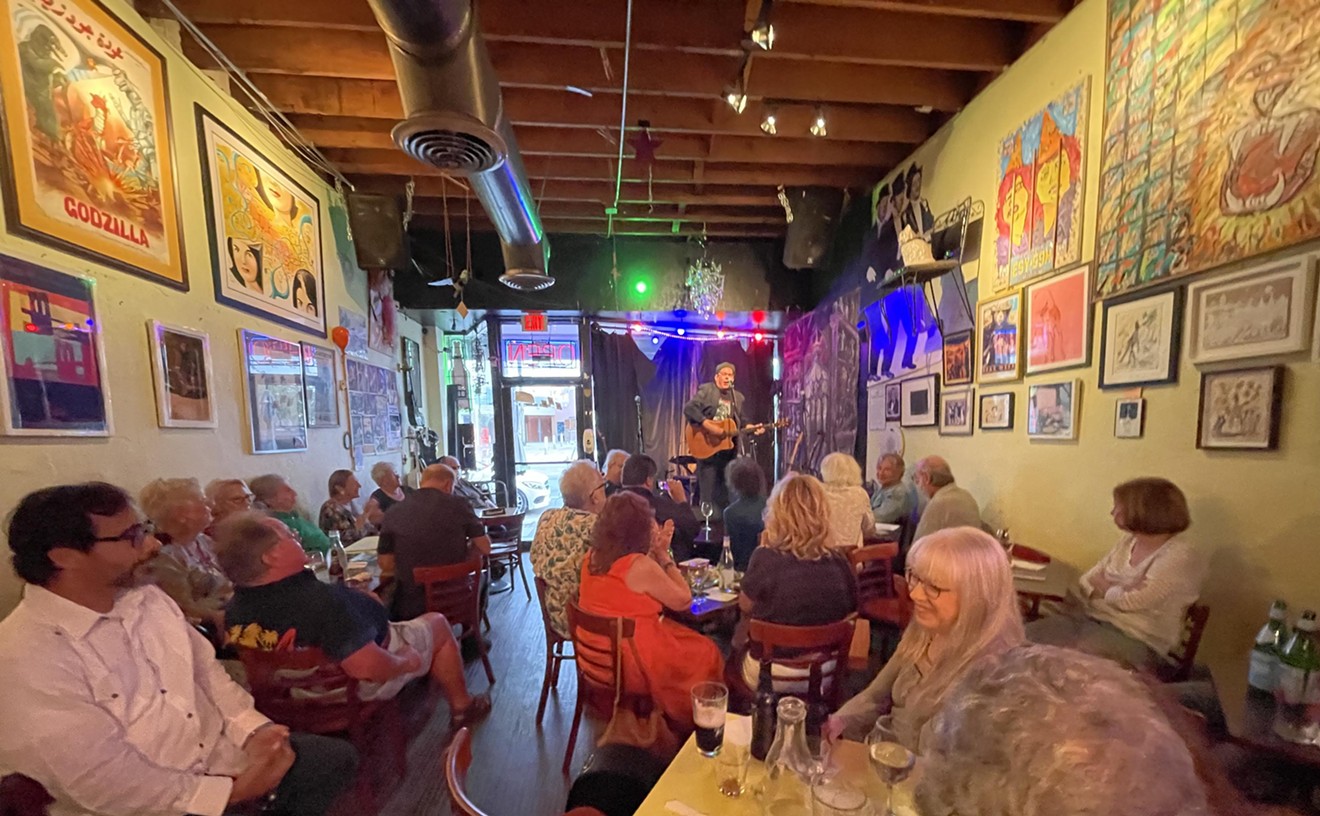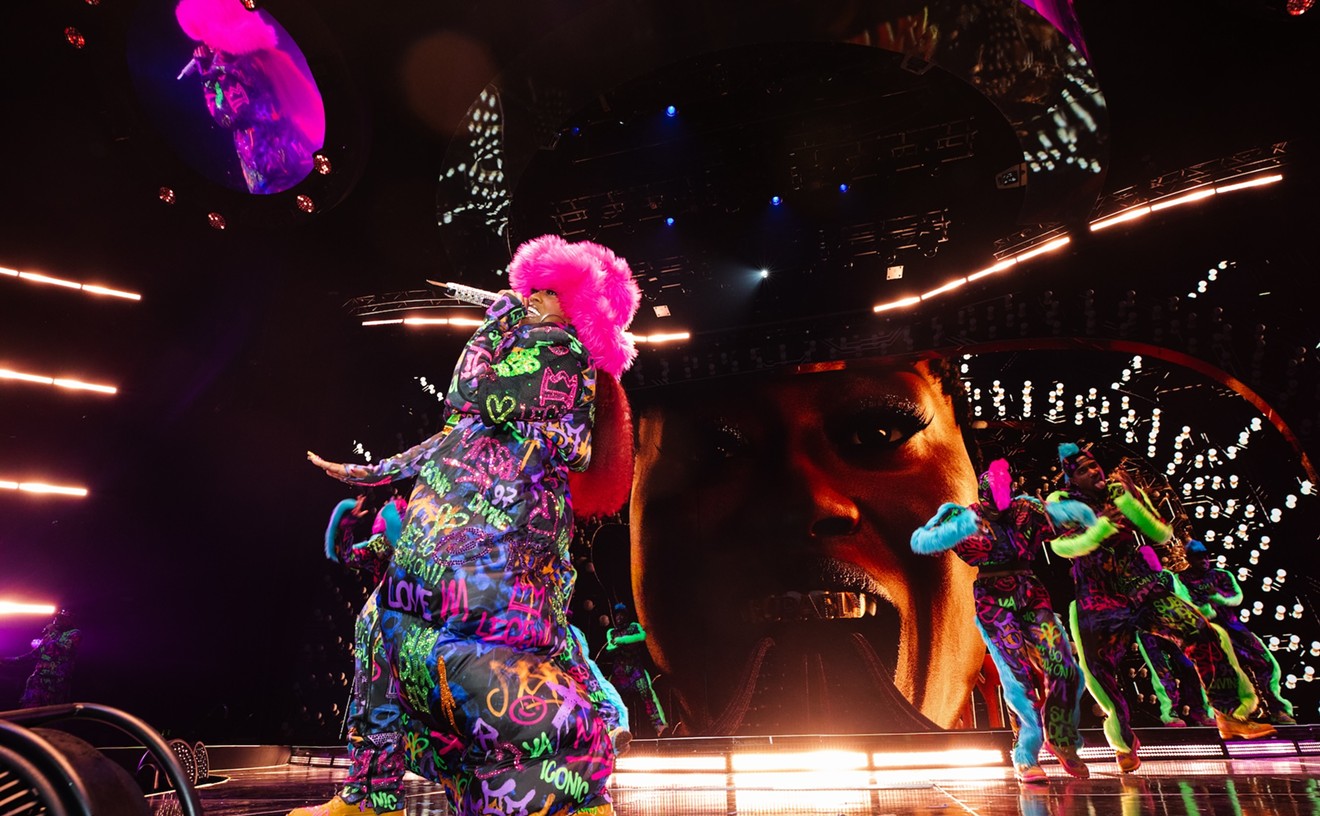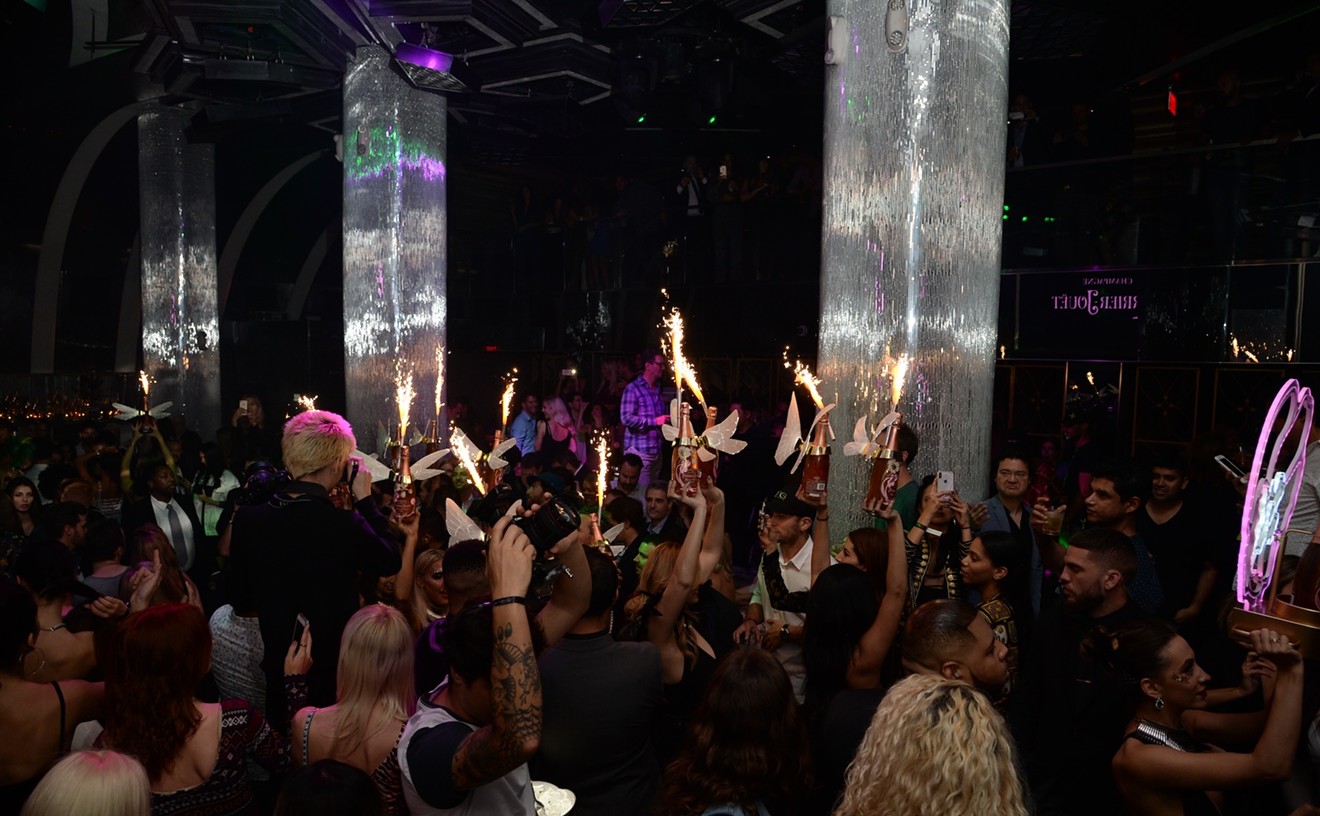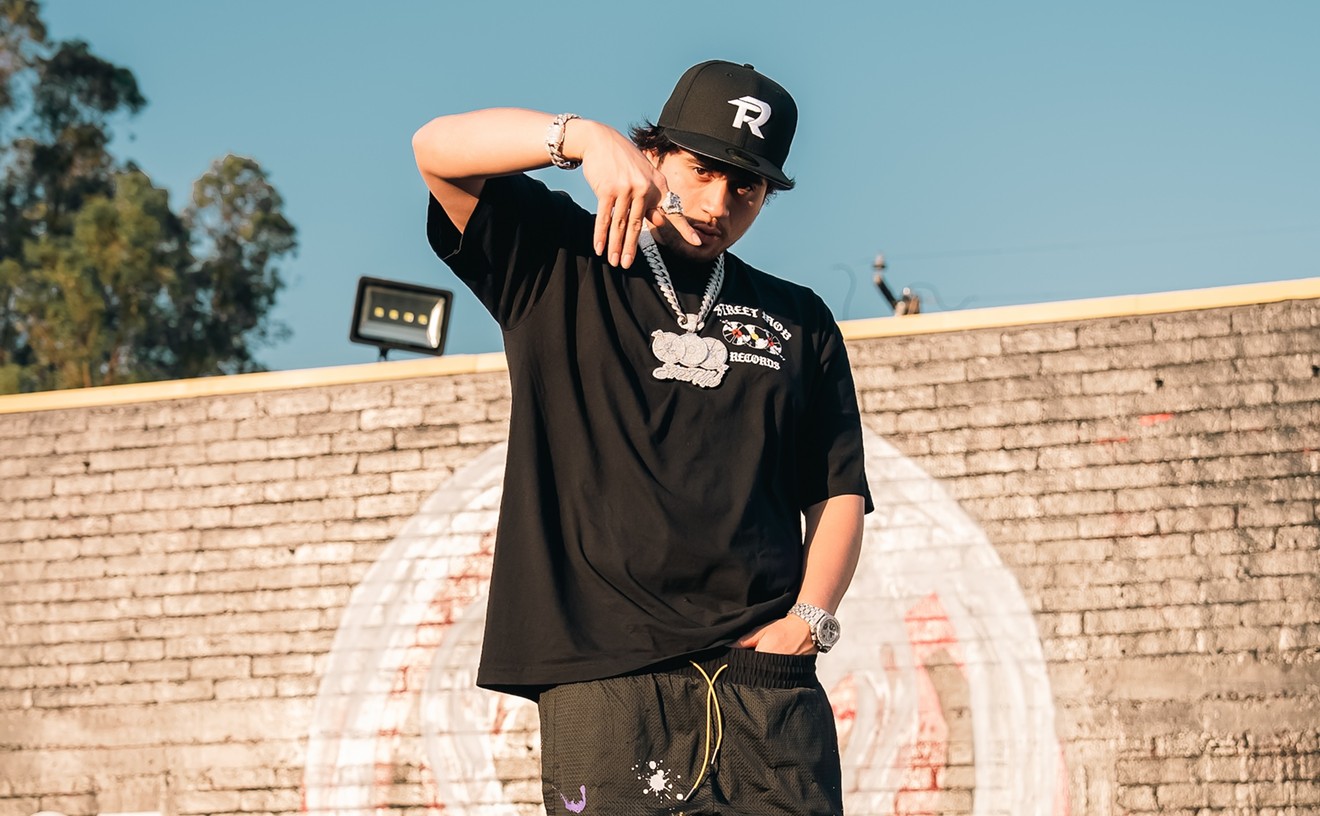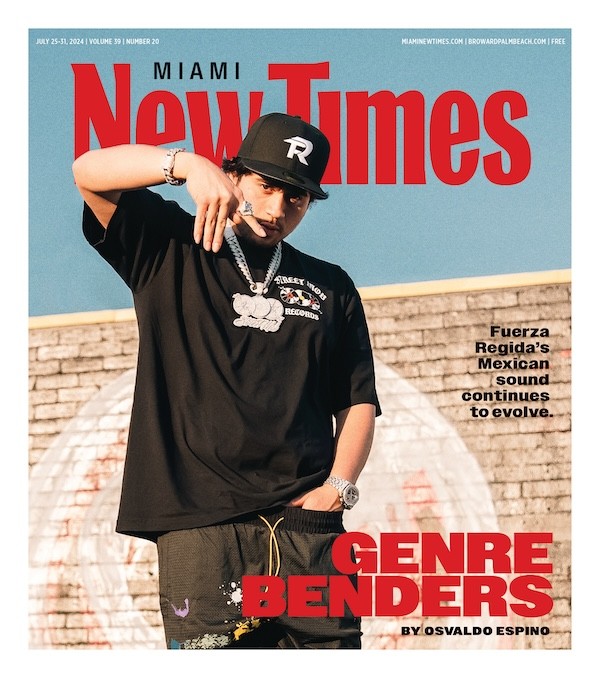"I started digging and went down a big rabbit hole," he explains of his subsequent foray into dance music.
Nine years later, Tei is one of Miami's mainstay DJs, known for enchanting local dance floors with a unique mix of Afrobeat, house, hip-hop, and highlife. His sets are steeped in the West African sounds he grew up listening to and which symbolize the sonic history of a genre steeped in Black music.
Since his days of deep-diving into all things dance and house music, Tei has traced the genre back to the Black originators whose culture has been mostly co-opted and repackaged into a commercialized monopoly.
"My entry into it, for example, was through Solomun, who's a white guy, and the track he produced that I liked was a sample from Warren G, a Black artist," Tei recounts. "It's almost like a matrix. You get into it and do your research, and you realize, 'Oh, wow, this was actually started by Black people.'"
Decades removed and nearly 1,400 miles away from Chicago and Detroit, the cities that birthed house and techno, Tei is emblematic of the Black DJs and producers who are bridging the gap between the past and future. As the music was diluted and commercialized into a soundscape for mostly white spaces, Black DJs in dance music have struggled to earn the same acclaim as the genre's main contenders. So in 2019, when Forbes published its list of the 15 highest-paid DJs in the world, it came as no surprise that not a single one was Black.
That's the legacy of erasure.
Pioneered in the late '70s by prolific Chicago DJ Frankie Knuckles, house music was born out of the Black queer subculture in the Second City. Knuckles invented a sound that blended disco, alternative European synth tracks, percussion, and funk into a pulsating groove that enthralled partiers during his residency at the Warehouse club. Knuckles' signature style soon leaked into cities outside of the gay nightclub where he spun. In the 1980s and '90s, house was gaining popularity in England as it intertwined with another subset of dance music that was picking up steam among Black musicians in Detroit.
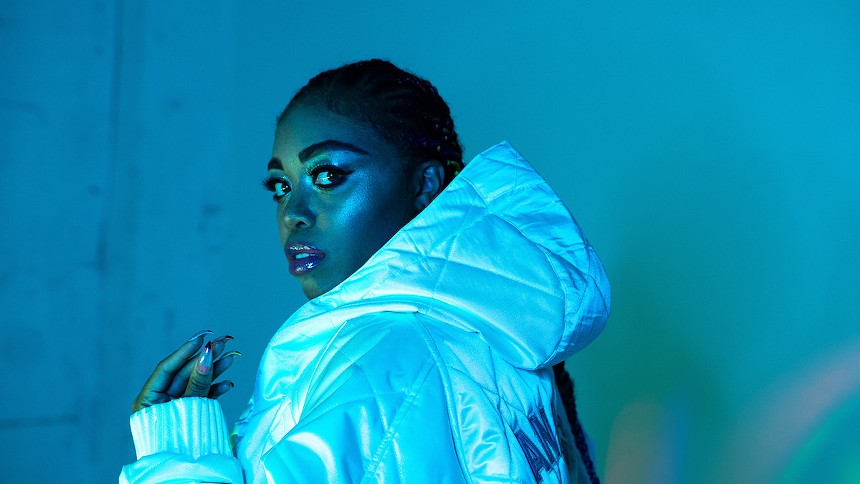
Suzi Analogue has cultivated a community to center marginalized and queer artists via her label, Never Normal Records.
Photo courtesy of the artist
Today, Detroit techno remains the foundation for renowned DJs worldwide, but a disconnect continues to silo the sound to EDM festivals whose audiences don't reflect the genre's architects, says Miami-based producer, composer, and songwriter Suzi Analogue.
"It's primarily marketed to white people," she says. "Meanwhile, the OGs and pioneers are just starting to get back on stage and back into performing, because for so long they were overlooked."
A Baltimore native, Analogue grew up listening to Baltimore club, a subgenre of dance music that was popularized by the city's spin on electronic music. Green Velvet's "Percolator," Baltimore DJ K-Swift, and Philly EDM artist DJ Sega were among her earliest influences, along with popular music from the U.K. and broken beat."You get into it and do your research, and you realize, 'Oh, wow, this was actually started by Black people.'"
tweet this
While Analogue blames institutionalized racism and sexism for minimizing the role of Black DJs at major dance festivals and on major charts (on Billboard's 2021 year-end chart for Top Electronic/Dance Artists, not a single one was Black), she has cultivated a community to center marginalized and queer artists via her label, Never Normal Records.
"I've done a lot for Black femme visibility," says Analogue. "I've been doing a lot of foundational work for it to be accepted and now you see Black women saying they're producers. I was a part of that kickoff."
Analogue recently partnered with Calvin Klein to compose the sound design for the design house's "Connection" campaign and has been tapped by Black women artists like Junglepussy and Dawn Richards to help produce and remix tracks.
DJs on the rise have seen a slight shift in representation, but there's still a barrier to entry for Black DJs looking to break into the festival and touring circuit. Festivals dedicated to honoring and uplifting Black electronic DJs like Afropunk and Dweller are among the few instances where icons and newcomers are given a global platform.
"There's a lot of us but not enough on bigger platforms," says HoneyLuv, a Los Angeles-based DJ and producer who is booked to perform a string of events during Miami Music Week this year.
HoneyLuv's sound is an amalgamation of house, futuristic, and deep tech, the last being a style she was introduced to in her hometown of Cleveland. The former athlete and U.S. Navy sailor grew up listening to Frankie Knuckles with her mom and fell in love with house music at an early age. Describing her sets as "very groovy with a little bounce," HoneyLuv is modernizing house with electronic, hip-hop, and Afrobeat to continue the boundless productions of Black producers who laid the groundwork decades ago.
"I've had a few friends who came out and saw my set for the first time at Skyline, and they were blown away," she tells New Times. "I told them the music originated from us and they were like, 'Wait, what? I didn't know that!' I feel like it's weird that history wasn't passed down to younger generations, and that's why a lot of Black people don't think it's for us. But once they found out, they'll be way more open to embracing it.""I'm usually the only Black person and sometimes woman on the lineup."
tweet this
Haitian-American DJ, community organizer, and event producer Ashley Venom is working to open the doors for Black queer DJs who aren't on the docket for local shows and festivals. In 2016, Venom worked for III Points as a festival producer and art curator, but her music wasn't supported until she joined the feminist art collective (F)empower in 2017.
Instead of performing at some of Miami's most popular venues, she cut her teeth at underground parties she curated with (F)empower until she was finally invited to play a set at III Points last October.
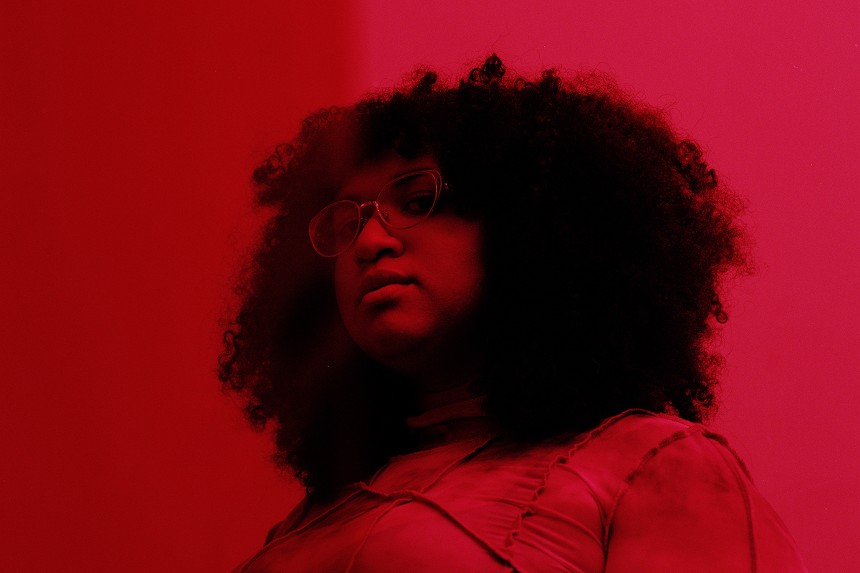
Ashley Venom cut her teeth at underground parties she curated with (F)empower.
Photo by Guarionex Rodriguez Jr.
In an effort to carve out a safe space for Black trans, nonbinary, and femmes, Venom launched Masisi, a Black queer Caribbean party, with DJ Akia Dorsainvil and illustrator Terrell Villiers. The parties emphasize acceptance and safety for Black partygoers and DJs who don't feel like they belong at dance-music events in Miami. The group adopted a tier-pricing system that prioritizes Black partygoers and hires queer-friendly security guards to make guests feel welcomed.
"As the music program director, one of the biggest things was making sure we book Black artists," Venom says. "Miami has a tendency of booking the same artists over and over again, and a lot of those people are not Black."
Masisi's Juneteenth party last summer was outfitted with an all-Black lineup and attracted one of the biggest crowds it had seen to that point. But Venom acknowledges there's still work to be done on the part of dance music's gatekeepers on a global and local scale.
For her part, she no longer accepts bookings where there aren't any women, Black, or queer people on the lineup. And she's continuing to work to close the pay discrepancy gap.
"As someone who gets booked a lot, I don't get booked enough," she says. "That says a lot about the ways these venues can make space. I want to be the disruptor of spaces that has those uncomfortable conversations. I want to be that person who's pushing for things to change."
Nii Tei, Suzi Analogue, HoneyLuv, and Ashley Venom represent Black DJs and producers throughout the U.S. who are challenging the status quo in the genre and connecting audiences to its rich diasporic history. What started as a sonic embodiment of Black queer liberation in Chicago has grown into a worldwide phenomenon planted in Black innovation and imagination, and that legacy cannot be erased.

